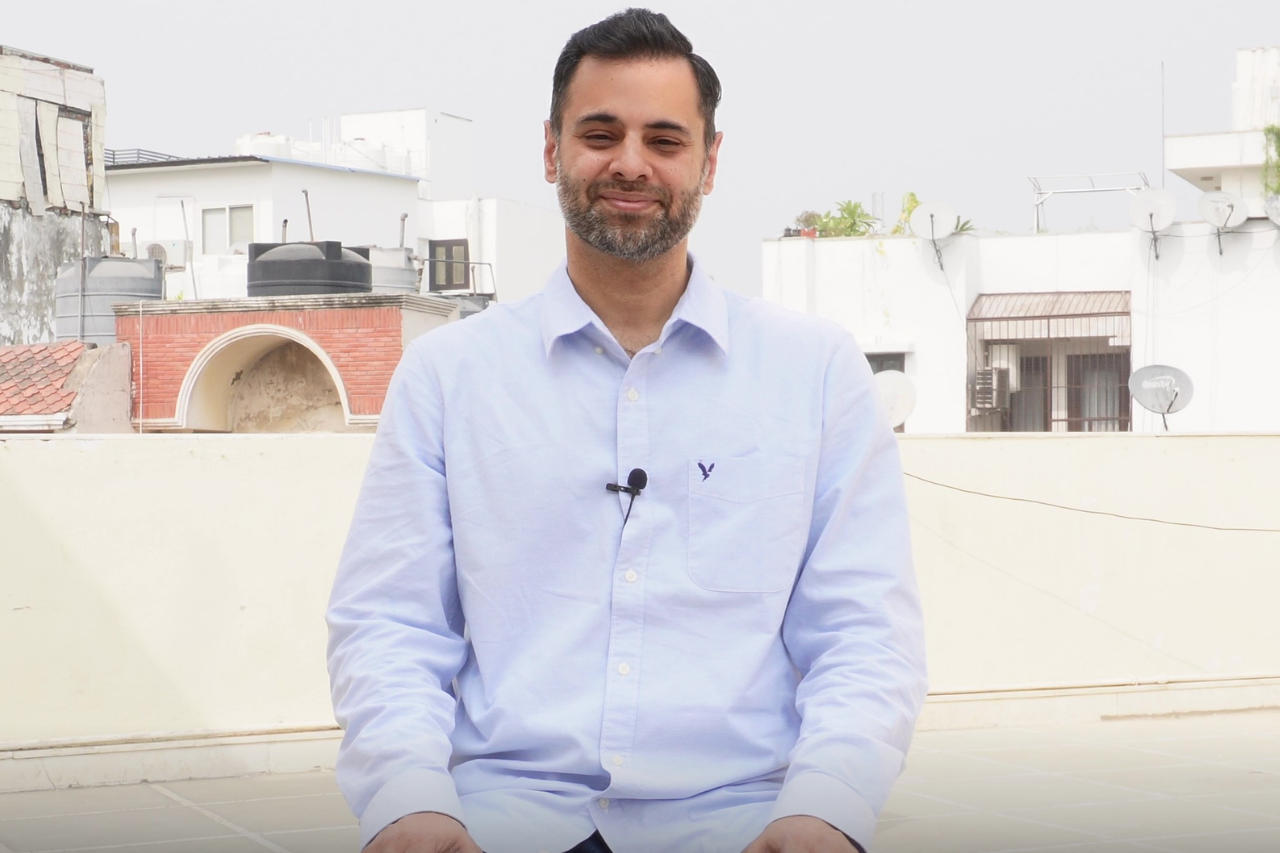We throw around the word “bliss” casually without really understanding its true meaning. Bliss does not belong to an individual, while suffering is always personal. It is always related to some aspect of mind and body perpetuated by past conditioning.
When something bad happens, it happens to the individuals who think of themselves as limited entities living a finite existence in this ephemeral world. Believe it or not, all the struggle is to sustain an illusory self that is deeply absorbed in the cycle of pleasure and pain.
We like to grab pleasure and avoid pain at any cost. We live like a beggar waiting for moments of happiness here and there. But all happiness in duality is transient. And not only that, it comes packaged with unhappiness, just like roses come with thorns.
There are fundamentally three types of actions that we perform in daily living: the first type is preserving the body-mind organism, like sleeping, eating, yoga, workouts, meditation, work (profession), and more.
The second type of action is associated with social interactions, like meetings, gatherings, parties, sexual interactions, or simply sharing thoughts with another person.
The third type is creating thoughts from the sense impressions stored in memory. This action is closely related to the first two. All suffering is associated with this action because we keep ruminating about past events, which may be pleasant or unpleasant.
We suffer recalling the past or fantasizing about the future. We replay the same stories repeatedly in our minds till they seep deep into the subconscious mind. The subconscious mind does not have the discriminatory capability like the conscious mind. So it believes in whatever you feed it.
Over time, the mind becomes a compulsive thinker, and at the center of all mental activity is “me,” or the sense of personal identification that is fighting tooth and nail to survive. This “me” is a fictitious entity that arises out of ignorance.
Please understand the word ignorance. Ignorance generally has a negative connotation, but it is neither a virtue nor a vice. It is a deliberate insertion as a part of the grand design – the game of life.
Ignorance means imposing name and form on anything that appears in consciousness. Living is not possible without ignorance. For example, “human” is a concept given to a particular group of physical entities, and ignorance makes inter-human interactions possible.
Deep down, we all know that we’re nothing but a collection of geometrically arranged subatomic particles. Therefore, this ignorance or abstraction is essential. Suffering happens when we become strongly attached to this abstraction and believe it to be the only reality.
This abstraction is so deeply ingrained in our psyche that it’s virtually impossible to imagine ourselves in any other way. All spiritual seeking is to see beyond this abstraction and realize the true self – an unchanging and infinite reality that transcends all suffering.
Buddha’s first noble truth says there is suffering. For whom? It is not an absolute statement. The suffering is for the one who sees separation. Nirvana (enlightenment) is when the small “I” merges with the universal “I,” and the sense of separation remains only in appearances. Samsara (the world of name and form) is of the mind, while Nirvana is “No mind” or emptiness.
Horizontal Movement of Thinking Mind
There are two types of mind: The working mind – where we use critical and analytical thinking to solve problems, and the thinking mind – which sways us into a pattern of horizontal thinking. The thinking mind is the root cause of our suffering.
When I’m writing an article, my working mind allows a space in which the words appear. It is a flow-state where I’m fully immersed in the activity and lose the sense of time. This is the creative problem-solving mind that subsides the ego. For example, when I’m engaged in an activity, I don’t care about the weather or the activities happening around me. The working mind locks focus on the activity.
The thinking mind, on the other hand, is the involvement of the ego in the activity. It creates expectations and is more concerned with the outcome of the work. It is called “doership.” It lives either in the past or in the future fantasy.
While performing an activity, if you find yourself bombarded with thoughts such as, “I hope people will appreciate my work,” “Am I good enough,” “I’ve always been a failure, I don’t see this happening for me,” and so forth – it’s thinking mind.
If you’re aware of your mind, you’ll notice how thinking leads you from one thought to another, forming a horizontal chain in time. The thinking mind suffers and creates suffering for others. It causes confusion, dissonance, and indecisiveness, and hinders productivity. There is a “me” here that is scared of criticism and condemnation because it thinks itself to be the doer of all actions.
The thinking mind is always concerned with consequences and outcomes. It is impulsive and reactive. It likes to blame, hate, condemn, and feel guilt for failure. And it feels pride and arrogance in success.
Even when successful, it robs you of your happiness. “You did it by fluke,” “You know you don’t deserve this,” “there is something better ahead,” and this way, it keeps you chasing the momentary happiness. The result is that you keep chasing the next happiness rather than enjoying the fruits of your labor.
To strengthen itself by continually seeking validation, the thinking mind diverts our attention from the bliss of the present moment.
The thinking mind is problem-oriented, the working mind is solution-oriented, and “no mind” is bliss.
Bliss Is Silence
Unlike horizontal thinking, bliss happens as an impersonal spontaneous thought that brings awareness to the present moment or now. There is no one individual experiencing bliss. Simply put, it is the silence of the mind.
When the mind becomes silent, the heart spontaneously awakens, and an energy surge is felt in the body. There is no name for this state. The closest thing that can describe it is empty awareness or nothingness. It is the final abode.
A mere glimpse of this state brings about a complete transformation. It drops all suffering and questions about life and living. It is the dissolution of the ego and its sad story. It feels like waking up from a dream. In the ancient scriptures, this state is called the Turya Avastha (pure consciousness).
In silence, there’s no individual to suffer, so all that remains is pure bliss or consciousness. The mind still continues in the material world, but there’s no sense of doership. It destroys sensitivities, heightens intuition, and gives rise to authentic creativity and genius.
But you see, the ego doesn’t like the idea of its dissolution, so it keeps the mind confused by alternating between thoughts of good and evil, right and wrong, virtue and vice, and more. For most spiritual seekers, this is the period of intense suffering, which in my understanding is the dark night of the soul.
The mind-body complex you know as Jagjot is only an instrument through which the divine consciousness expresses itself energetically. Therefore, I don’t take pride in my work as a content creator, and neither do I feel fear, shame, or conscious of how my writing will be perceived.
All the effort towards self-development or skill mastery is to enable a better channeling mechanism for the divinity to express itself. No individual grows. We mistakenly use the phrase “expand our consciousness.”
It is the mind that expands in consciousness and not the consciousness itself. It cannot expand because it is the substratum of all creation.
Some people like my writing. Some don’t. Why should I be bothered when I know it’s not my doing but the work of divinity? Whoever subscribes, I say welcome, whoever unsubscribes, I say goodbye, but the door of my heart is open to all.
The silence or presence drops all stories and fantasies and what remains is the pure changeless witnessing consciousness or ceaseless watching. It is an unconditional surrender to the timeless and dimensionless presence.
You cannot transcend what you do not know. To go beyond yourself, you must know yourself
Nisargadatta Maharaj
What Is The Root of Suffering?
The above article is a sample from my latest book – The End of “Me & My Story.” You can get it here on Amazon.

